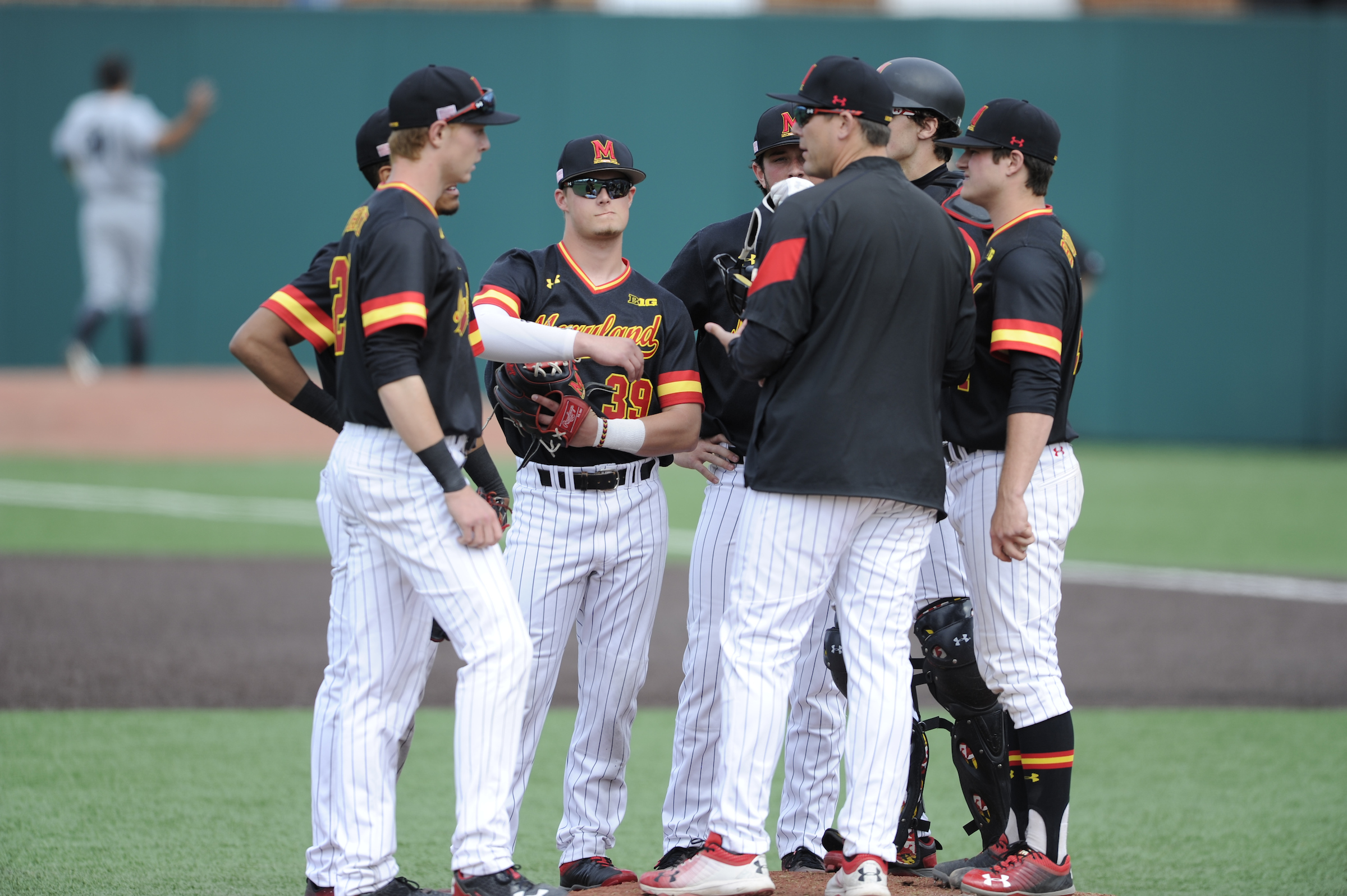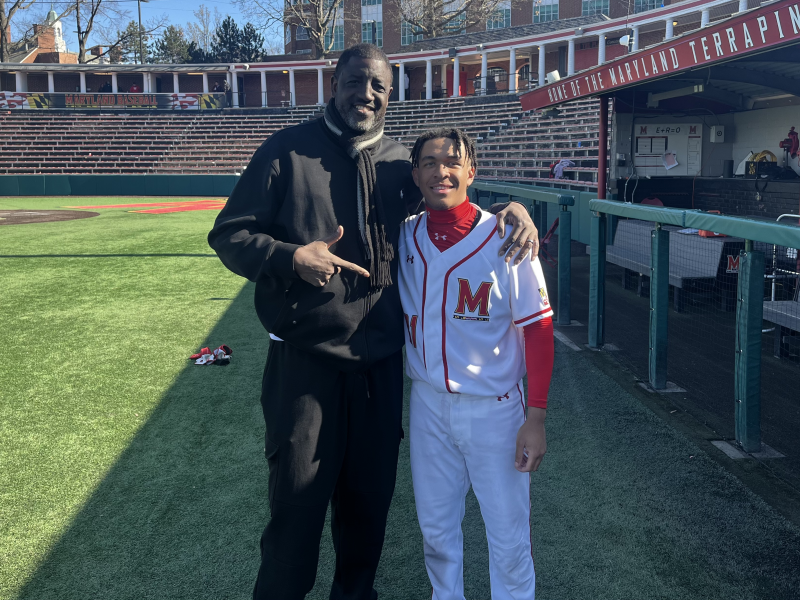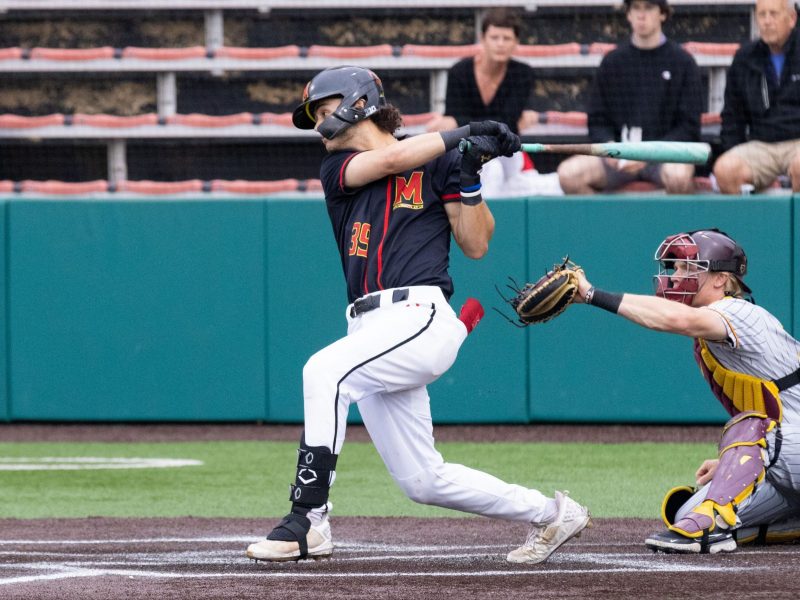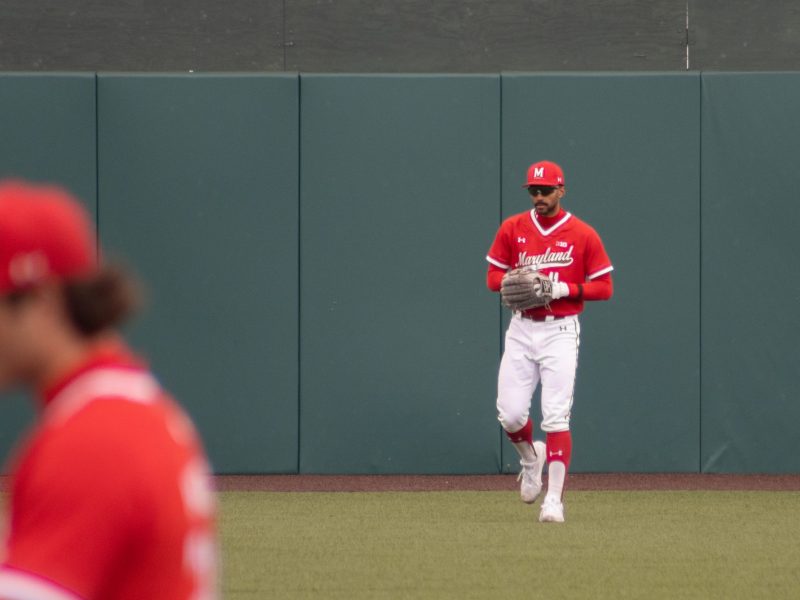Unsure of himself, Corey Muscara kept looking over his shoulder at St. John’s coach Ed Blankmeyer.
Muscara, then 25 years old and beginning the biggest job of his career, felt out of place attempting to take over for Scott Brown, who left for Vanderbilt and is one of the most successful pitching coaches in the country.
He didn’t know if he could fill Brown’s shoes or meet the expectations of Blankmeyer, who had just led St. John’s to a Super Regional appearance in 2012.
“I felt very inadequate,” Muscara said. “Trying to impress coach Blankmeyer, who’s a Hall of Famer, trying to live up to Scott Brown.”
As Muscara struggled to acclimate, Blankmeyer pulled him aside and assured him, “It’s not what you know, it’s how much [the players] know you care.”
That counsel helped Muscara realize that mimicking somebody else wouldn’t lead to success.
“Once I realized … I had to be myself,” he said, “I became a better coach.”
He inherited the third-youngest pitching staff in the country, and they grew together. Muscara helped the Red Storm to four winning records and two NCAA Regionals before coming to Maryland this year.
Tasked with a similar underclassmen-heavy bullpen in College Park as he had in his first year with St. John’s, Muscara has worked to instill confidence in a group where results haven’t bred much.
Amid a season that has Maryland fighting for Big Ten tournament qualification rather than a second straight Regional, Muscara’s focus on mental strength and a relaxed clubhouse atmosphere has helped his project in College Park take shape.
“He’s a little bit wild,” right-hander Hunter Parsons said. “He’s a little bit crazy, comes with a lot of energy. And it’s just something I love.”
‘A no-brainer’
Two summers ago, Rob Vaughn and Muscara were frequently the only college coaches at a ballpark in Flemington, New Jersey.
Vaughn, at the time a Maryland assistant coach, made a habit of standing with Muscara on the left-field line, talking about whatever came to mind as they targeted players for their separate teams. They noticed they had a similar approach toward recruiting, searching for players they would later define as OKGs — Our Kind of Guys.
Then, last spring, Muscara called Vaughn to inquire about a junior college shortstop who used to play at Maryland. Two hours later, after an extensive discussion of coaching philosophies, the call ended.
“It just kind of happened,” Vaughn said. “That was kind of the first time we spent an elongated time on the phone.”
The conversation convinced Vaughn that if he became a head coach, he would want Muscara on his staff.
And in June, when he was hired to replace former head coach John Szefc, Vaughn immediately told then-athletic director Kevin Anderson he needed Muscara.
“Really a no-brainer,” Vaughn said. “I really didn’t have an option B. If he told me no, it was kind of back to the drawing board.”
‘Full of positivity’
Parsons had just moved into The Varsity before the fall semester, and was eating at Looney’s Pub when a stranger put his arm around him.
It was Muscara.
The two hadn’t yet spoken over the phone, let alone met in person. Parsons wondered how Muscara, his third pitching coach in three years, would compare to the previous members of the Terps coaching staff. Just from the way Muscara introduced himself, Parsons learned a lot about him.
“I know last year, your year kind of sucked,” Muscara told him. “You’re gonna be a guy for us this year. I have a lot of confidence in you.”
The chance encounter left Parsons eager to begin fall workouts with the blunt yet supportive coach.
Right-hander Mark DiLuia got a similarly enthusiastic introduction, receiving a 30-minute phone call from Muscara when he was on a family vacation over the Fourth of July weekend.
“Getting that phone call from him was kind of a sense of relief,” DiLuia said. “He was a pretty energetic guy right off the bat, and ever since then it’s been the same.”
Dreams and nightmares
On Feb. 18, Parsons spent the 500-mile bus ride from Knoxville, Tennessee, back to College Park reliving each of the eight runs he’d surrendered in his disastrous season debut.
It was a nightmare beginning to Parsons’ junior year, after all the encouragement and preparation in the offseason.
After he got home, Parsons had a dream about a change to his two-seam fastball grip. He tentatively told Muscara about it during practice, and the coach immediately jumped on board, willing to experiment with Parsons’ style to make the junior comfortable before his next outing.
Parsons implemented the new grip in a relief outing against William & Mary a few days later and picked up a strikeout in 1 1/3 scoreless frames. The Fruitland native has kept the tweak throughout the season, leading him to a team-high 83 innings and a 3.47 ERA, the lowest of any Terps starter.
“Sometimes it’s little things like that,” Muscara said. “That’s the art of coaching.”
Muscara’s open-mindedness and personal belief in each of his pitchers has led to a bullpen full of unique stories.
Right-hander Elliot Zoellner opted to change his delivery to a sidearm motion he learned in Wiffle ball. Left-hander Billy Phillips credits Muscara with his return to the mound after he overcame leukemia. Kevin Biondic became a go-to relief option despite never having pitched in college before.
Still, Maryland’s ERA sits at 5.10 — more than a run above last year’s mark — as an undermanned and inexperienced core works through what looks exceedingly like the start of a rebuild, not the high Big Ten finish expected coming into the year. But Muscara has left a unique imprint on a group of pitchers that had no trouble buying in.
“He’s given us the opportunity to throw,” DiLuia said. “That’s all you can ask.”
‘Just a game’
At practice last Tuesday, third baseman Taylor Wright tried to backhand a grounder behind the bag but couldn’t quite scoop it. He dropped his hands to his knees and hung his head momentarily before rolling the ball back to Muscara, who had hit it to him.
The coach took the opportunity to teach a lesson he’d learned throughout a testing college career. He leaned back, flung his arms in the air and let out a mock wail. Wright smiled, well used to his antics by that point.
Muscara then said Wright was acting like Charlie Brown, getting one last laugh before offering fielding advice. He hit the same grounder until Wright handled it routinely.
“Every time [Wright] makes a mistake, the weight of the world is on his shoulders,” Muscara said. “Sometimes he needs to realize that it’s just a game.”
As a freshman at Siena, Muscara compiled a 7.20 ERA in 20 innings. After that season, his mother bought him “Mind Gym,” a book focused on strengthening an athlete’s mentality. It was the first time he was exposed to that idea, and he quickly realized he wanted to help athletes understand they could lighten up.
“In sports, it’s always equated to war,” Muscara said. “And it’s not even remotely close to the same thing. In war or battle, you die.”
Muscara’s focus on the mental game helped DiLuia adjust to the Friday night role after starter Taylor Bloom suffered an injury. The freshman was suddenly thrust into nationally televised games and in front of crowds of more than 5,000 people.
Before each game and practice, Muscara has his staff fill out a notecard with something mental they want to work on. It’s the first time a coach has worked on DiLuia’s mind instead of just his mechanics.
“All the work that we’ve been putting in the past month or so about the mental game,” DiLuia said, “I think that’s really helped my game out a lot and put me to another level.”
‘A lot of love’
Shortly after he was hired, Vaughn had a three-hour phone call with Muscara to gauge his former recruiting rival’s interest in moving south to College Park. He felt the connection was already there.
Players have seen it, too. Parsons said the coaching staff often jokes, and the atmosphere they’ve created makes it fun to come to practice. Muscara has challenged his staff to a race — “he got absolutely dusted,” Parsons said — and requested Rick Ross on the speakers.
Muscara’s reassuring and loose nature meant no one second-guessed his plan. It helped the Terps keep things in perspective during a disappointing campaign.
“Kids need to be believed in,” Vaughn said. “He does such a good job of … showing everyone a lot of attention, a lot of love.”



